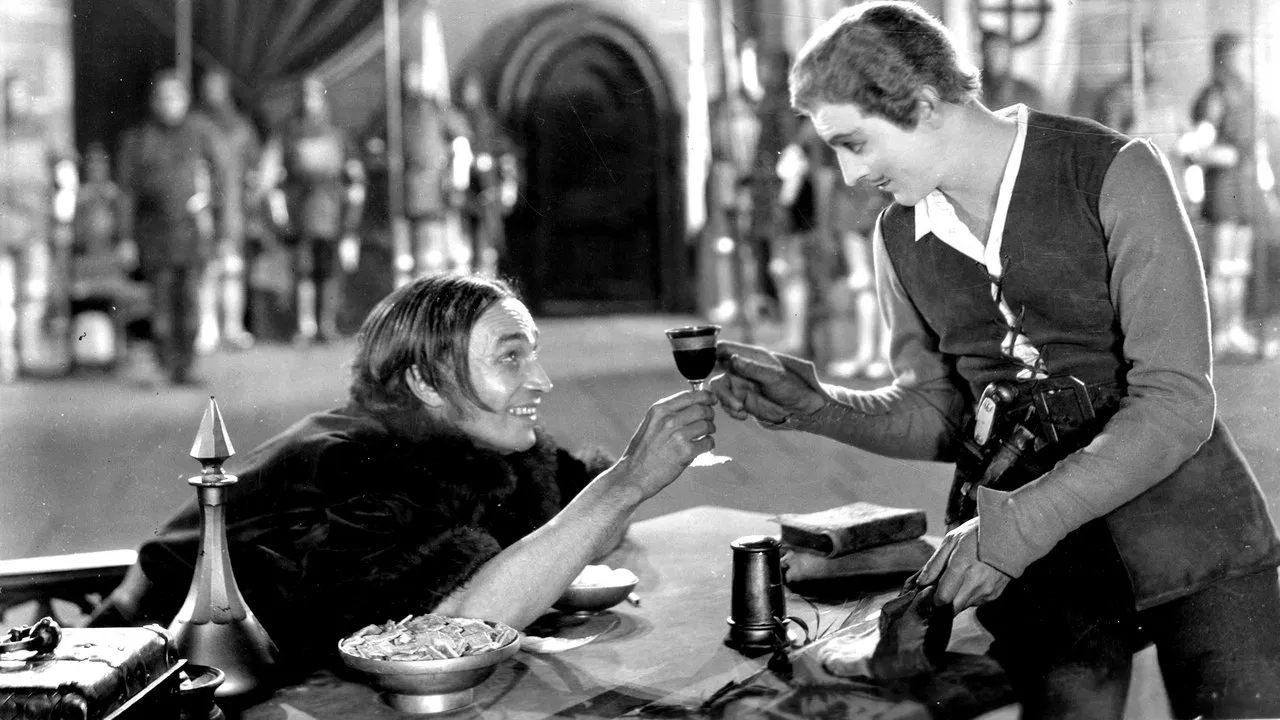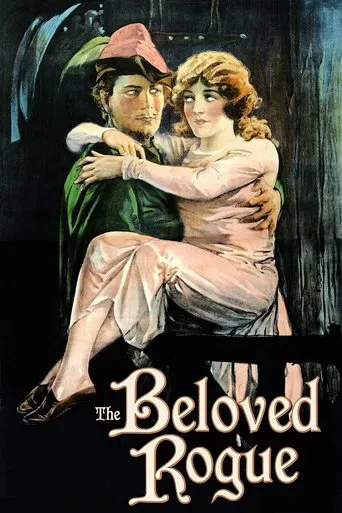

8 stars as a movie, 5 as history.I wish the movies, when based on history and actual people, are a bit more researched. The story, except a few parts goes too far away from the history. Lois XI has been shown to be blindly dependent on the astrologers his actual state-crafts and the intrigues (for which he was called spider) are totally negated. In fact his physical characteristics were made like a spider. His reforms, his bonhomie with the common men too were completely overlooked. Lois XI was historically too different and supposed to be a far better person, from the caricature that is shown. Villon too is another historical figure, but again his life (especially the end) doesn't match with history, nor does the fate of Charles, the Duke Of Burgundy. It could have been better if he hadn't attended the ceremony since the fictionalized Count and fictionalized Charlotte's story won't have hurt the history. Of course the relation between Lois and Charles are real, as was between Villon and Lois (who had a very kind disposition towards Villon). Even the end (of Villon) isn't right, since Villon in reality had simply disappeared from public (undoubtedly dead, but as an unknown person). The only facts are Charles, Duke of Burgundy's enmity to Lois, Villon's being close and loyal to the King (Lois) and his much more than what is shown bohemian life. If I leave the historical aspects and treat it just as a movie - not based on real people - I give it 8 stars. Merceline Day looked gorgeous, JB was of course a consummate actor, a bit theatrical on today's standard, but I have to look at the trend then and also remember it is a silent movie, so a bit of over-expression is required. Conrad as Lois XI had been creepy (as this story called for). So over all as a fiction movie it is enjoyable.But knowing that this is as well as an historical movie, the stars go down due to blatant contradiction with facts. Just as a footnote - I didn't know even a century back (the last scene), the population control was a hot, though not to be taken too seriously, subject.
... View MoreFrançois Villon (John Barrymore), in his lifetime the most renowned poet in France, is also a prankster, an occasional criminal, and an ardent patriot.This film also stars Conrad Veidt as the king, though it is not one of Veidt's more notable performances. Director Alan Crosland would release his most well-known film, "The Jazz Singer", this same year.This film was lost for some forty years until a beautiful tinted and toned copy was discovered in the late 1960s in the collection of film pioneer Mary Pickford. Pickford, an early champion of film preservation, tried saving all things "United Artist", the production company in which she was a founder.Barrymore says he thought of his acting in this one as being hammy, and he was right. How much this was intended is unclear. Although a comedy to some degree, it is not a complete comedy, and the ham might be a bit out of place.
... View MoreFrançois Villon was a real-life poet and rogue who lived in Paris in the 15th century. However, most of what is portrayed in this historical film is actually fiction--from a play created at the beginning of the 20th century. Whereas in the film he met and became friends with Louis XI, in reality he died in his 30s and was never involved in all the intrigues like he was in this film. In reality, he wrote some lovely verse and was frequently on the wrong side of the law--not the combination of a patriot and Robin Hood-like character like he is in the film. Provided you know that the film is nearly 100% fiction, then it's well worth seeing--just don't assume it's a good history lesson.In THE BELOVED ROGUE, Villon is played with wild abandon by John Barrymore. I was also pretty excited to see that his three friends were all played by very familiar faces. Angelo Rossitto, who was the plucky dwarf, played in tons of films over the years and had a very long career. Slim Summerville was a character actor known for adding a touch of comedy to films. Mack Swain is best known as the silent film foil in many of Chaplin's short films and played his partner in THE GOLD RUSH. All four of these men did a nice job and have no complaints---even with Barrymore's rather over-the-top treatment that was rather reminiscent of a Douglas Fairbanks performance. However, the performance I had a serious problem with was Conrad Veidt as King Louis XI. To call this "unsubtle" would be a gross understatement. He played the role like a high schooler who thought he was supposed to be the stereotypical Richard III--skulking about and acting like a demoniacal caricature. While Veidt was wonderful in many, many films (both silent and sound) but here he is just ridiculous.As for the story, it's full of lusty adventure and action--like a swashbuckling film minus the sailing ships. The sets worked out well for all this, as they'd been used the previous year for THE HUNCHBACK OF NOTRE DAME. Both films were set around the same time period.Overall, it's one of the last great silent films. There's a lot to like and the film is a lovely combination of romance, comedy and action. Well worth seeing, though it loses a couple of points for Veidt's overacting as well as the way the film plays fast and loose with history.By the way, this film was also made twice as IF I WERE KING (1920 and 1938) and apparently these two films are closest to the original play. However, in total, six films have been about Villon and tell, more or less, variations on the same tale!
... View MoreSuperb silent version of the story of Francois Villon. Although remade in the thirties as IF I WERE KING, with Frank Lloyd directing, Preston Sturges scripting and Ronald Colman starring, this version is even better. Barrymore, with a cohort of comedians, plays the comic fool and the wine-depressed Villon with a verve that Colman could not match. The photography is startling in its beauty and innovation and the supporting cast, particularly Conrad Veidt in his American premiere, the incredibly beautiful Marceline Day, and the supporting comics, Slim Summerville and Hank Mann, steal every scene they are in.It is a shame that Barrymore did so few first-rate comedies. Among his sound films, only his lead in TWENTIETH CENTURY and his supporting role in MIDNIGHT can compare to this, and those stand up only because of his superb voice. In this silent movie, Barrymore must tell his tale without benefit of words, and he does so, alternately hilariously unrecognizable as the King of the Fools and tenderly as Villon in love. He even gets to leap around in the swashbuckling style of Fairbanks, most convincingly. He also lets his supporting cast have their share of glory, capering in this ensemble work like any talented comic of the era.Finally, a brief word about Alan Crosland, a director known today only for directing the first talking feature, THE JAZZ SINGER in the same year this was released. Crosland was a careful, innovative, delightfully original director, and it is a shame that more of his works are not known. Perhaps this movie, far more interesting as a movie than his best-known work, will be your introduction to his other talents. If so, you could do far worse.
... View More